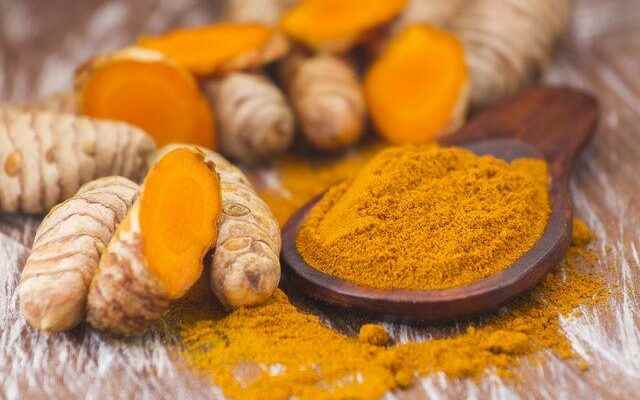Also known by its scientific name, Curcuma longa, turmeric is an ancient Indian spice, medicinal herb, and food coloring from the ginger family.
It is a key ingredient in Indian curries with a flavor often described as hot and peppery. Almost all of the world’s turmeric is grown in India. The root stems of turmeric, called rhizomes, are bright yellow or orange in color. It is usually dried and ground into powder.
WHAT IS TURMERIC?
Turmeric is mainly composed of carbohydrates, mostly starch and fiber. However, like all spices, turmeric contains numerous plant compounds and nutrients. Root stems are also rich in plant compounds called curcuminoids. These curcuminoids are the main active compounds in turmeric. It is the source of turmeric’s orange-yellow color and health benefits. Supplements containing curcumin, the active ingredient of turmeric, have started to take their place on the shelves frequently.
BENEFITS OF TURMERIC
The health benefits of turmeric come from its curcumin content. The clearest benefits identified are that it may help treat or reduce symptoms of inflammatory health conditions such as bowel disease, arthritis, psoriasis, depression, and atherosclerosis.

Turmeric antioxidants protect against cellular damage from free radicals associated with health conditions such as diabetes, heart disease, and cancer.
Studies suggest that curcumin supplements may promote dilation (widening) of blood vessels, increasing blood flow and lowering blood pressure.
They may also reduce the risk of heart attack by improving endothelial function or improving cholesterol levels, possibly thanks to their anti-inflammatory effects.
Curcumin may help slow cancer cell growth and promote cancer cell death. Current research is exploring the potential of curcumin as a treatment for a variety of cancers, including breast, prostate, pancreatic, colorectal, and lung cancers.
WHAT ARE THE SIDE EFFECTS OF TURMERIC?
Both turmeric and its main active ingredient, curcumin, are generally considered safe and do not have any serious side effects. However, some people may experience side effects when they take high doses as supplements. Excessive consumption of turmeric can cause kidney stone formation.

Turmeric can also lower blood sugar and increase the effects of antidiabetic medications or insulin.
Turmeric can aid digestion by increasing stomach acid levels, which can hinder the effectiveness of antacids.
However, the effects of turmeric can increase or block the effects of some medications you take. If you have medications that you use regularly, you should consult your doctor before using turmeric.
HOW MUCH SHOULD WE CONSUME TURMERIC PER DAY?
Although turmeric is a medicinal plant, excessive consumption can have side effects. A few of the possible side effects are stomach pain and nausea, headache, heart palpitations and watery blood, diarrhea and gas. Therefore, the amount of daily use should not be exceeded. This amount is 6 to 8 grams per day, ie 1 tablespoon.
CAUTION BEFORE YOU TAKE TURMERIC
Be aware that low-quality turmeric can be mixed with inexpensive fillers such as wheat starch and cause adverse symptoms in people with gluten intolerance. So make sure the place where you buy the turmeric is safe and the spice is pure additive-free.
